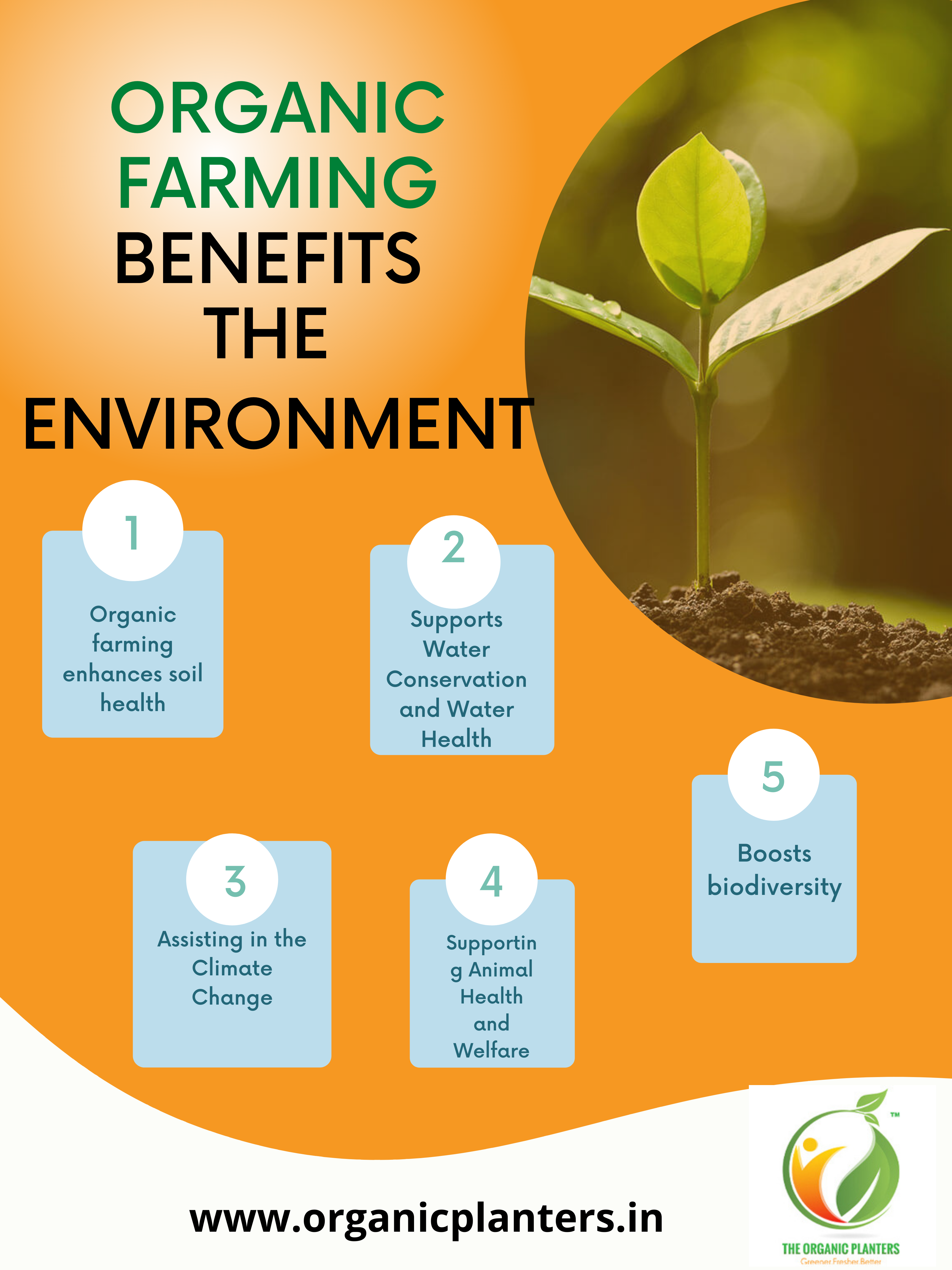How Organic Farming Benefits the Environment?
organic farming is a type of agriculture that aims for sustainability, the enhancement of soil fertility, and biological diversity while restricting genetically modified organisms, synthetic pesticides, synthetic fertilizers, and growth hormones. Organic products have significant environmental benefits in addition to consumer health benefits. Organic farming preserves biodiversity and reduces pollution of the air, water, and soil.
Environmental benefits of organic farming practices
Organic farming enhances soil healthIf you use toxic pesticides and chemicals in the soil,
it may become incapable of thriving on its own. Organic farming aims to add natural additives to the soil. Intercropping, crop rotations, cover crops, symbiotic associations, organic fertilizers are all important soil building practices in organic farming. These foster soil fauna and flora, which improves soil formation and structure and makes systems more stable. As a result, nutrient and energy cycling improves, and the soil's nutrient and water retentive capacity improves. Thus soil biodiversity is increased, and nutrient losses are reduced, helping to maintain and foster soil productivity. It also plays an important role in soil erosion control.
Organic Farming Supports Water Conservation and Water Health
Pollution of groundwater by chemical fertilizers and pesticides is a major issue in many agricultural areas. Organic farming uses organic fertilizers such as compost, animal manure, green manure etc and thus improves soil structure and water infiltration.
Assisting in the Climate Change
Organic farming saves nonrenewable energy by avoiding the use of chemical pesticides and fertilizers, which require a lot of fossil fuel to build. Organic farming also brings more carbon to the soil, which then lessens the global warming and greenhouse effect
Supporting Animal Health and Welfare
Organic farming assists in natural pest control, which not only helps to conserve more natural habitat areas but also encourages birds and other natural predators to live in harmony on farmland. Moreover, animals grown on organic farms graze on harmless, pesticide-free farmlands keeping them healthy and disease resistant.
Organic farming boosts biodiversity
Organic methods, such as crop rotation and the avoidance of synthetic inputs, increase biodiversity in the environment. Diverse fauna and flora are necessary for life on earth, and they can only be preserved through sustainable agricultural practices like organic farming.
Organic Planters uplift the local farmers and support them in food production. Are you starting organic farming ? we can help you to star organic farming.
Check out our organic farming consultation today!
 Vegetables
Vegetables
 Fruits
Fruits
 Other Products
Other Products
 Rice, Millets & Pulses
Rice, Millets & Pulses
 Traditional Handicrafts
Traditional Handicrafts
 Beauty Products
Beauty Products
 Masalas and Powdered Spices
Masalas and Powdered Spices
 Spices
Spices
 Organic Pesticides
Organic Pesticides


 0
0 +91 9288003324
+91 9288003324




